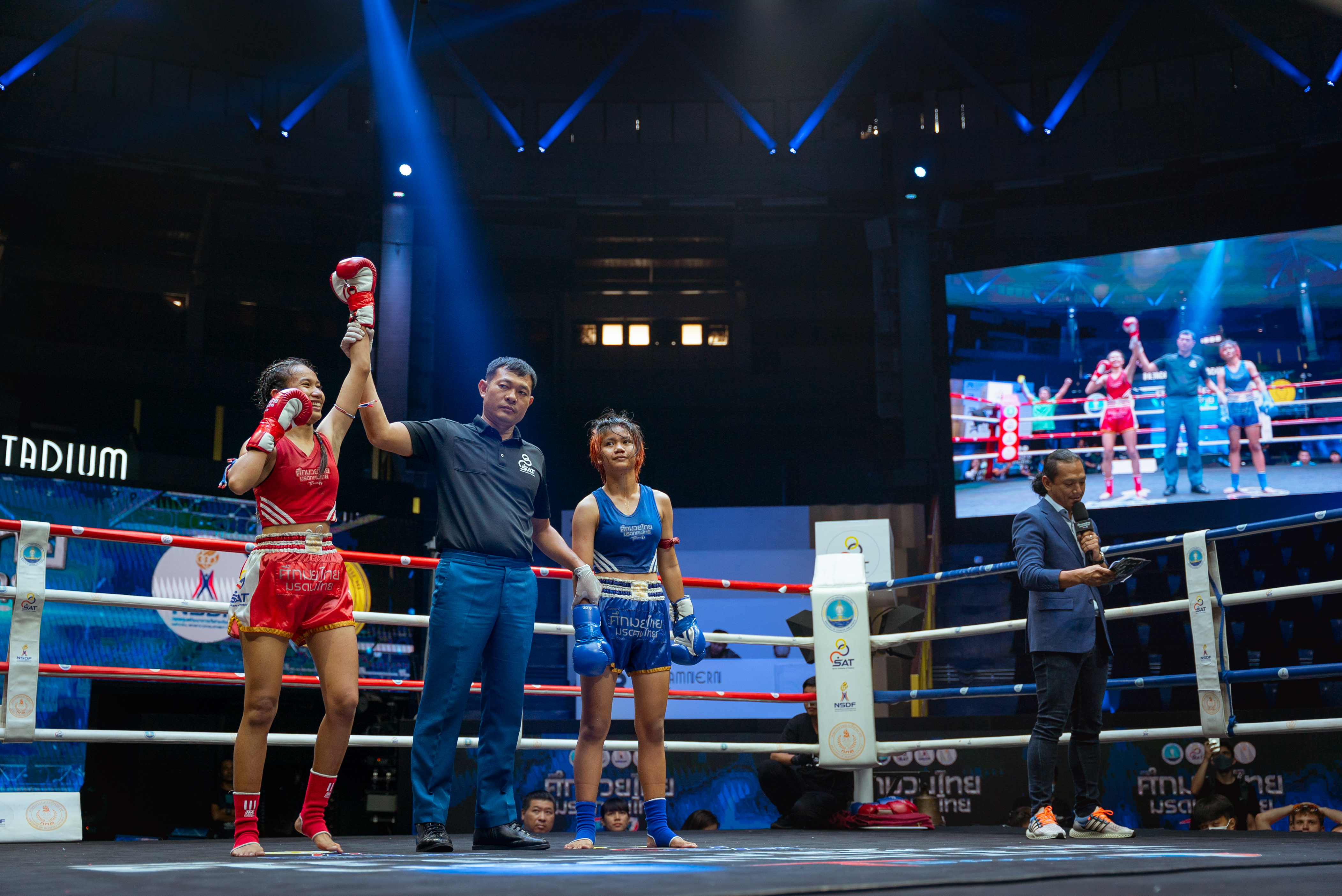She Came From Thailand’s Biggest Slum. Now She’s One of Muay Thai’s Top Rising Stars
May 4, 2023BANGKOK—In Thailand's oldest Thai kickboxing stadium, 19-year-old Porntip “Cha” Khamthongphanow delivers a hard, fast strike.
After losing two of three earlier rounds, tensions are high. She knows she has to fight her way back in the fourth to still have a chance of winning. Her elbow catches her opponent’s forehead, splitting skin. At the sight of dripping blood, the referee at Bangkok’s Rajadamnern Stadium swiftly calls a timeout.
“Neighbors and friends have told me I shouldn't be doing Muay Thai because girls are supposed to be pretty, not have scars on their faces or ugly injuries,” Cha told VICE World News a few days earlier while sitting on the floor of her local boxing gym.
Gendered perceptions like these, while not uncommon in Thailand, have not deterred Cha. For young women like her, the stakes are bigger than the match itself.
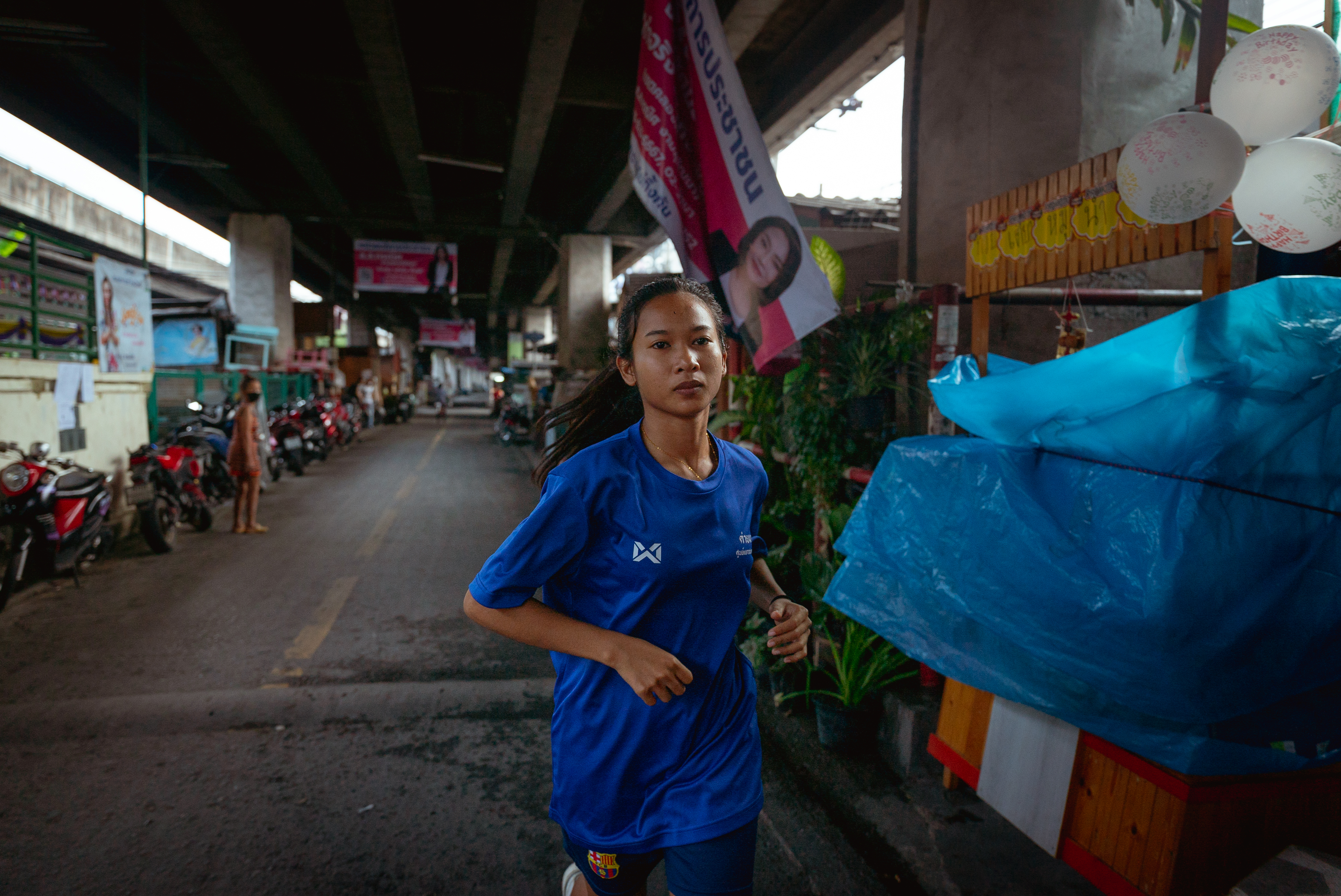
Cha was born and raised in Khlong Toei, Bangkok’s oldest and biggest slum. Home to around 100,000 people, this neighborhood houses some of the city’s poorest, with families often living in cramped conditions under corrugated iron roofs. It’s also known for having high rates of unemployment, as well as violent or drug-related crime.
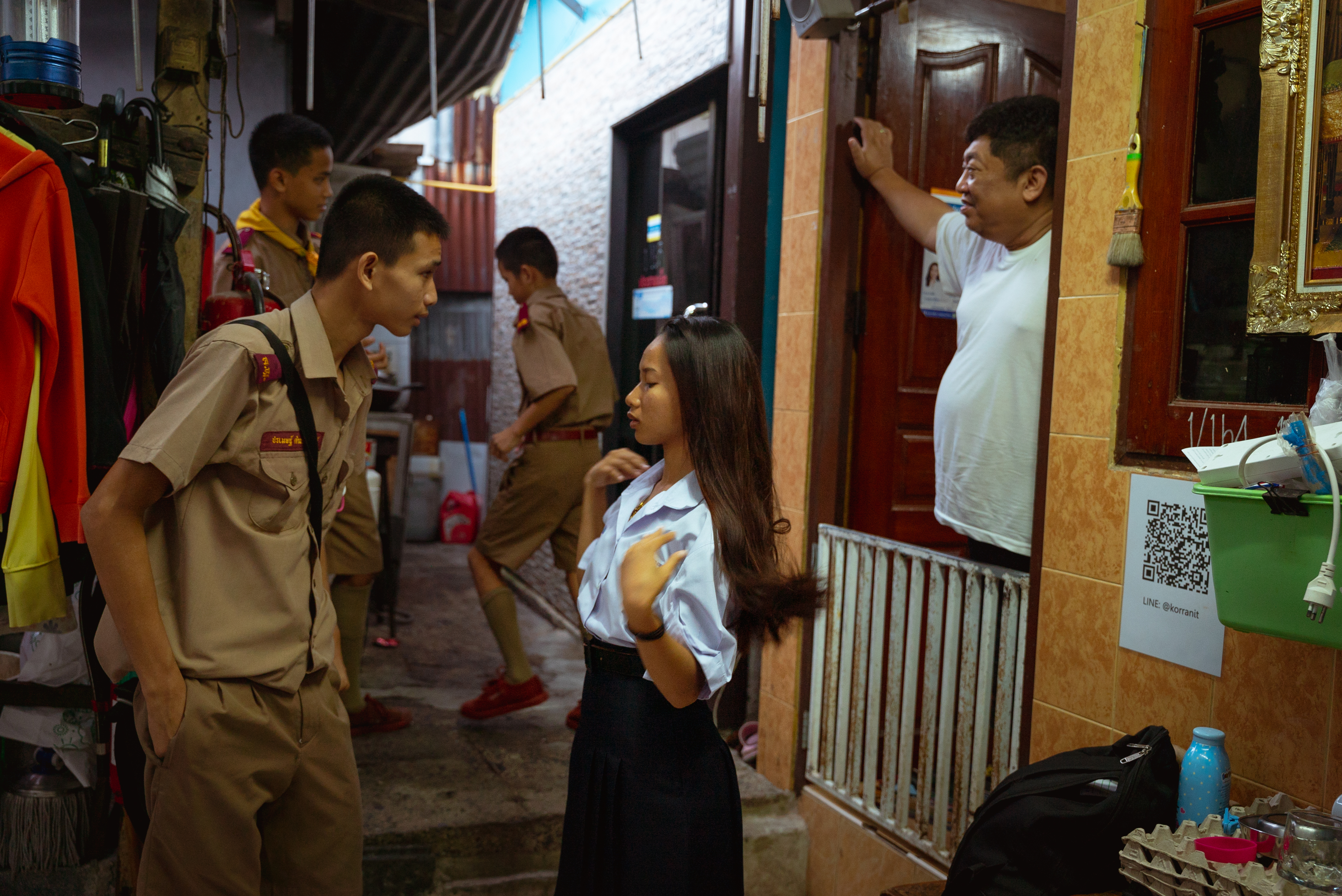
Down narrow alleyways, methamphetamine tablets are dealt by local gangs for as little as 50 baht ($1.45) a pill. Pandemic travel restrictions put a temporary stop to illegal drug export causing the market in Thailand to flood: but meth use rose 30% last year.
Khlong Toei Youth Centre, where Cha trains, was refurbished by the government in 2016 in an attempt to reduce drug-related crime among young people in the area although, today, many of the punching bags are held together with duct tape.
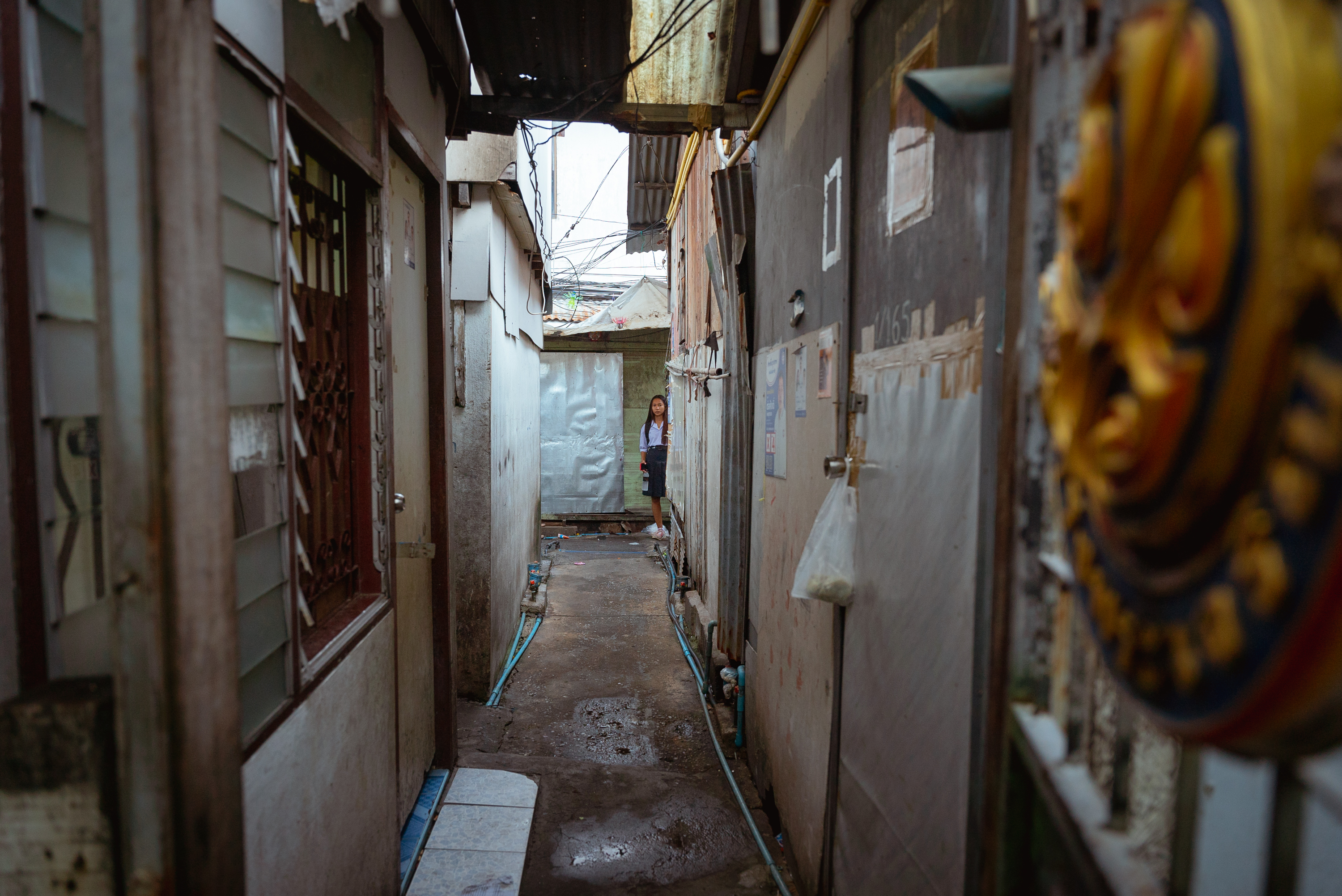
Cha’s own parents struggled with addiction throughout her life. In 2017, she and her younger brother Mek—also a Muay Thai boxer—decided to leave their parents and move in with Phichart “Lek” Phaophong, the manager of her boxing gym.
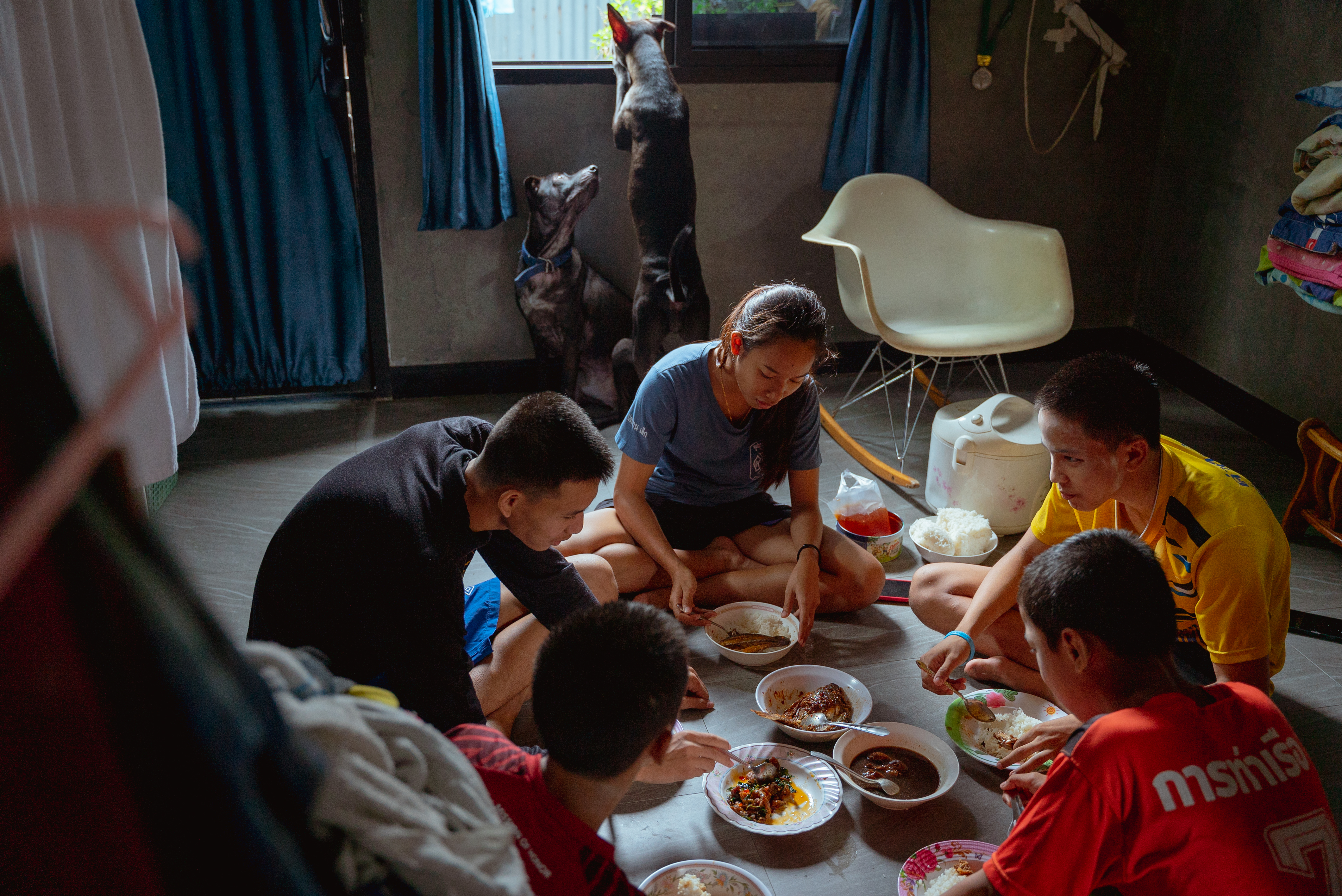
Lek opens his home to youth who he believes have the potential to go pro, keeping them to a strict regimen of training and school, and ensuring their match winnings go towards their education.
A relentless training regime that has her rising at 6am to run 10km before school and lifting weights late into the evening has provided her with a strong sense of discipline. Cha later encouraged her 15-year-old brother Mek to get back into boxing after she noticed him spending time with a group of youth involved with drugs.
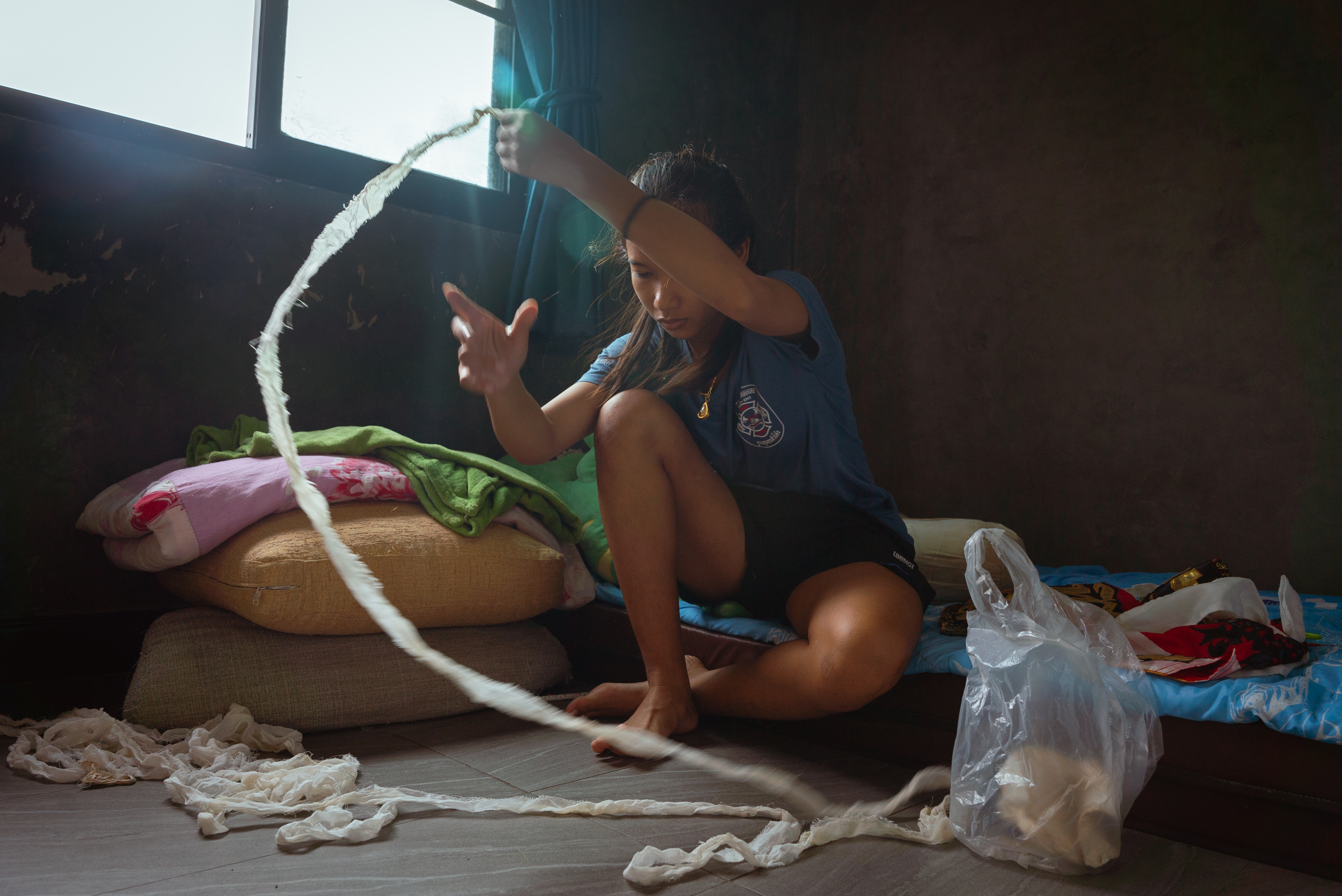
“Cha is a winner,” Lek told VICE World News, watching the match from the side of the ring at Rajadamnern. “Her strongest move is her kick. She has beaten many others before.”
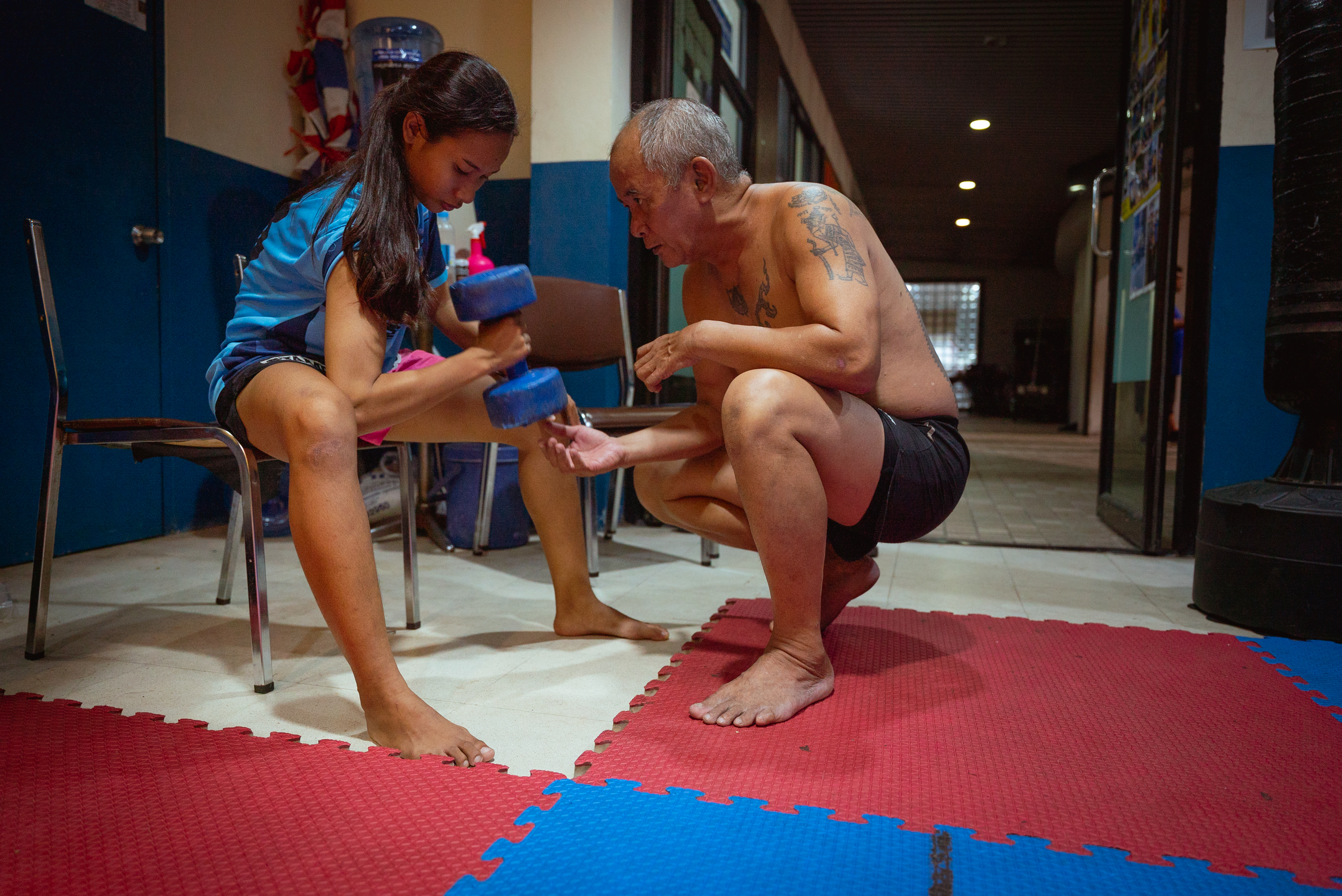
For others, education can be seen as a futile pursuit. In a country with one of the widest wealth gaps in the world, many women in Thailand experience chronic poverty. Society places less value on women and girls’ education, and low levels of education can result in fewer prospects for employment. With harsh anti-drug laws, Thailand has some of the highest numbers of women in prisons in the world, the majority of whom are incarcerated for drug-related offenses like selling or being in possession of drugs.
But Cha envisions a different future for herself.
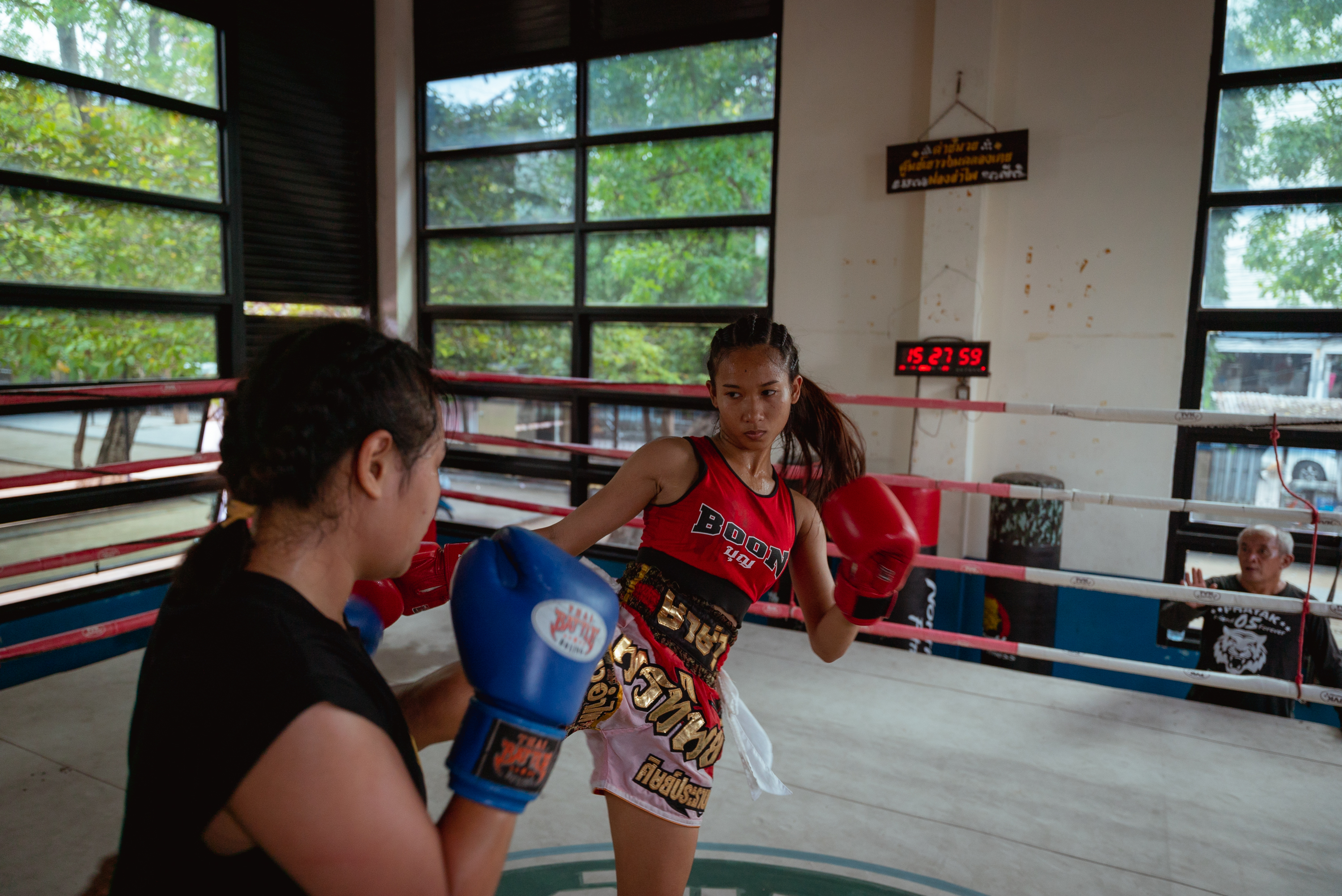
“Some kids in Khlong Toei aren’t in school,” said Cha. “Those with more of an education will usually stay away from drugs. If I wasn’t boxing, I’d have stopped going to school. I’d have no future, no purpose,” she said. “It’s a career. It’s a way to make a living.”
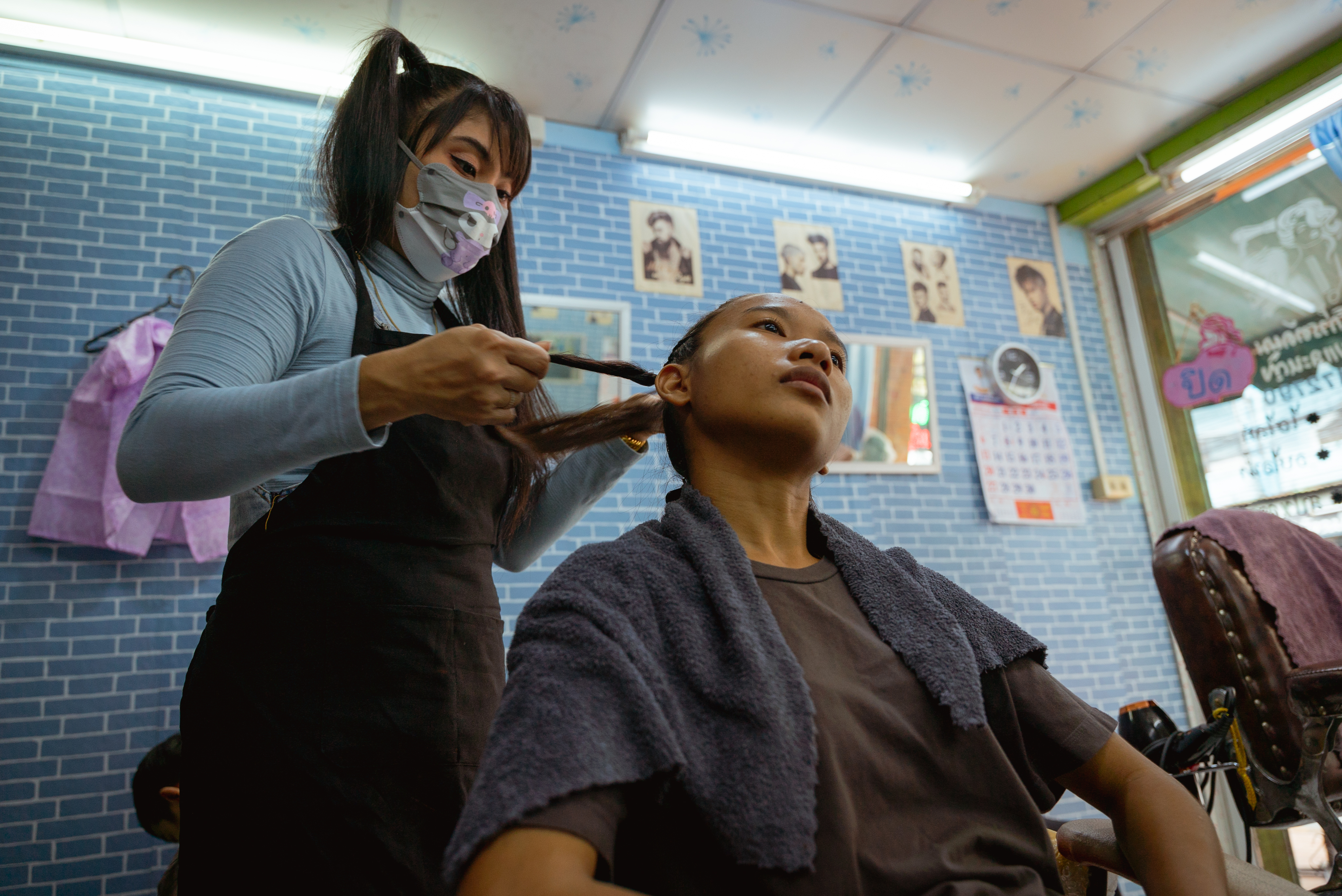
Yet women making a living from Thailand’s national sport is a relatively new, but growing phenomenon. As women’s Muay Thai boxing fights become more socially accepted, the sport has provided Cha with a rare chance of upwards social mobility.
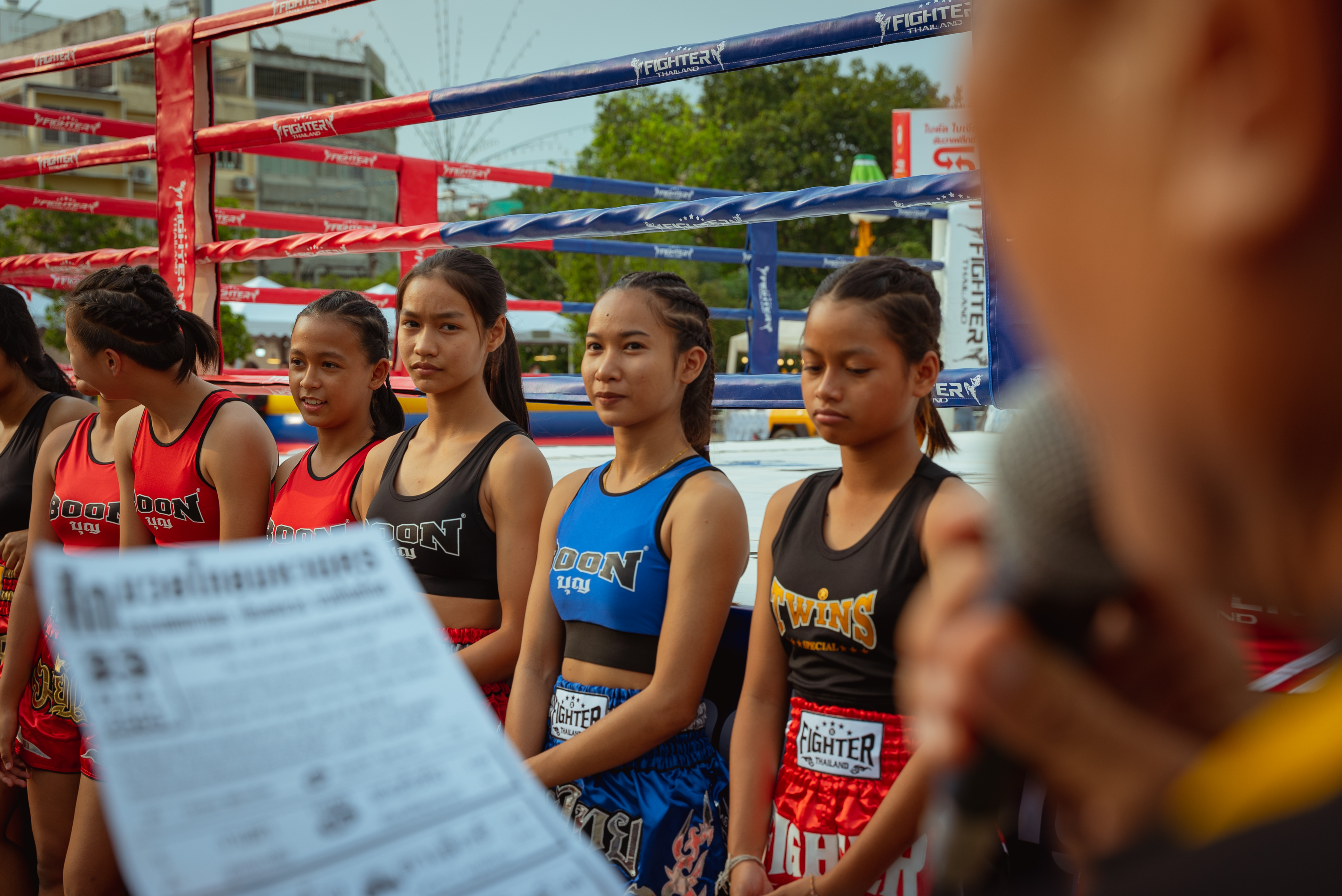
Thailand’s most prestigious boxing rings in the capital, like Rajadamnern and Lumpini, have only just begun allowing women's fights in a bid to modernize and attract younger viewers. The shift also makes business sense as more tournaments can mean more money for boxing venues, many of which struggled to stay afloat during the pandemic.
Until August 2022, many venues wouldn't allow women to even touch the ring, let alone fight in them. Some believe that menstruation is detrimental to the “protective magic” surrounding these traditionally sacred spaces. Even when women aren’t on their period, they’re still often required to enter the ring by crawling under the lowest rope, while men climb over the top.
For this reason, women are also not permitted to wear a sacred headdress called the mongkol while entering the ring, as it’s kept as high off the ground as possible. Instead, it’s placed on women’s heads once they’re already inside.
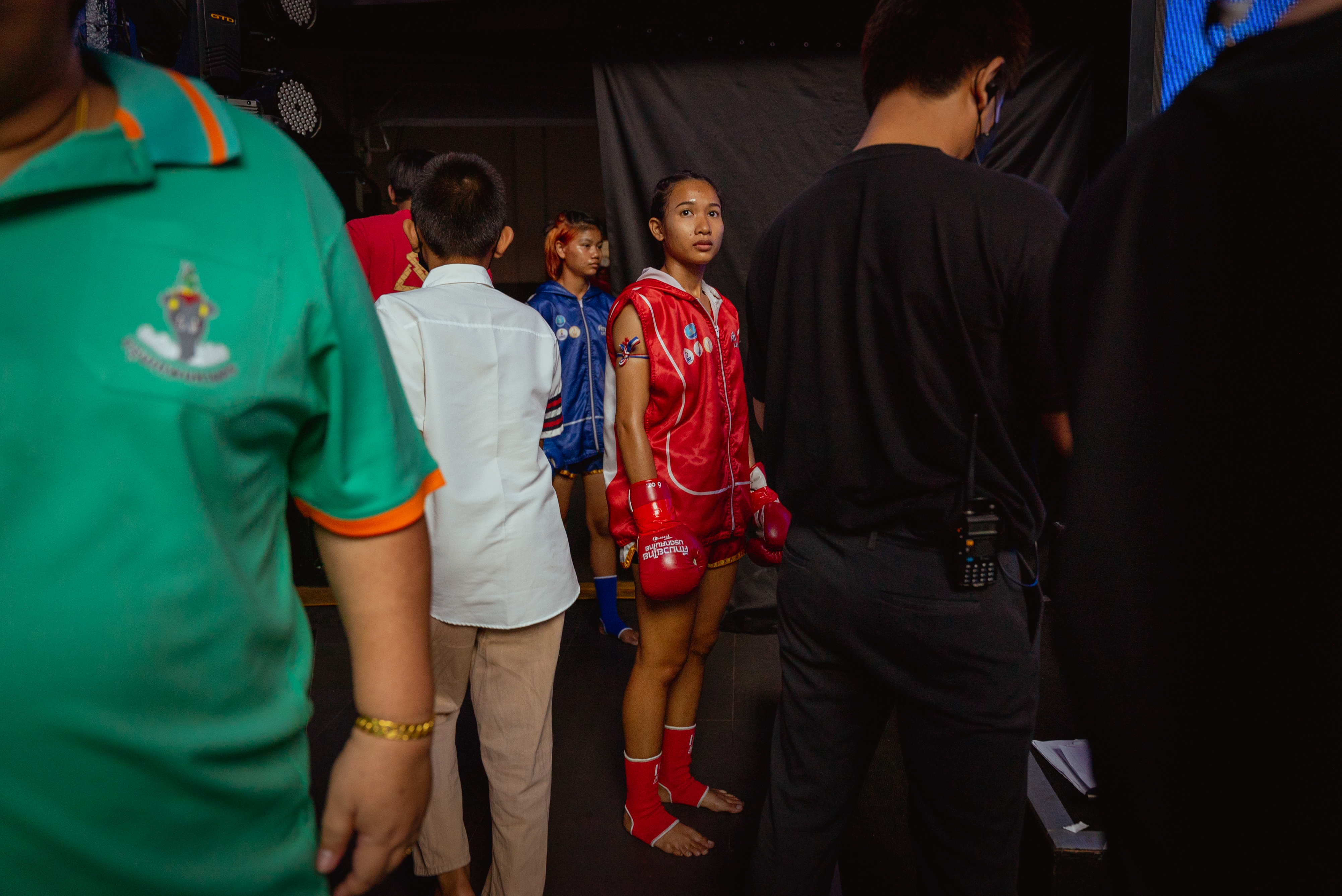
“Thai women can fight in Europe and different countries,” Muay Thai promoter Sombat Thaosuwan told VICE World News. “They are being promoted and are winning millions or tens of millions of baht in prize money. So stadiums in Thailand are changing their rules to be more contemporary with international standards.”
But leniency around women’s fights signifies only a partial victory. According to Sombat, women fighters receive only up to a third of what their male counterparts can earn. He says this is mostly because women’s fights are less popular and less common, attracting fewer viewers, gamblers, and ticket sales. But more women fighting at legacy venues like Rajadamnern—where some of the top titles and prizes are won—could help change that.
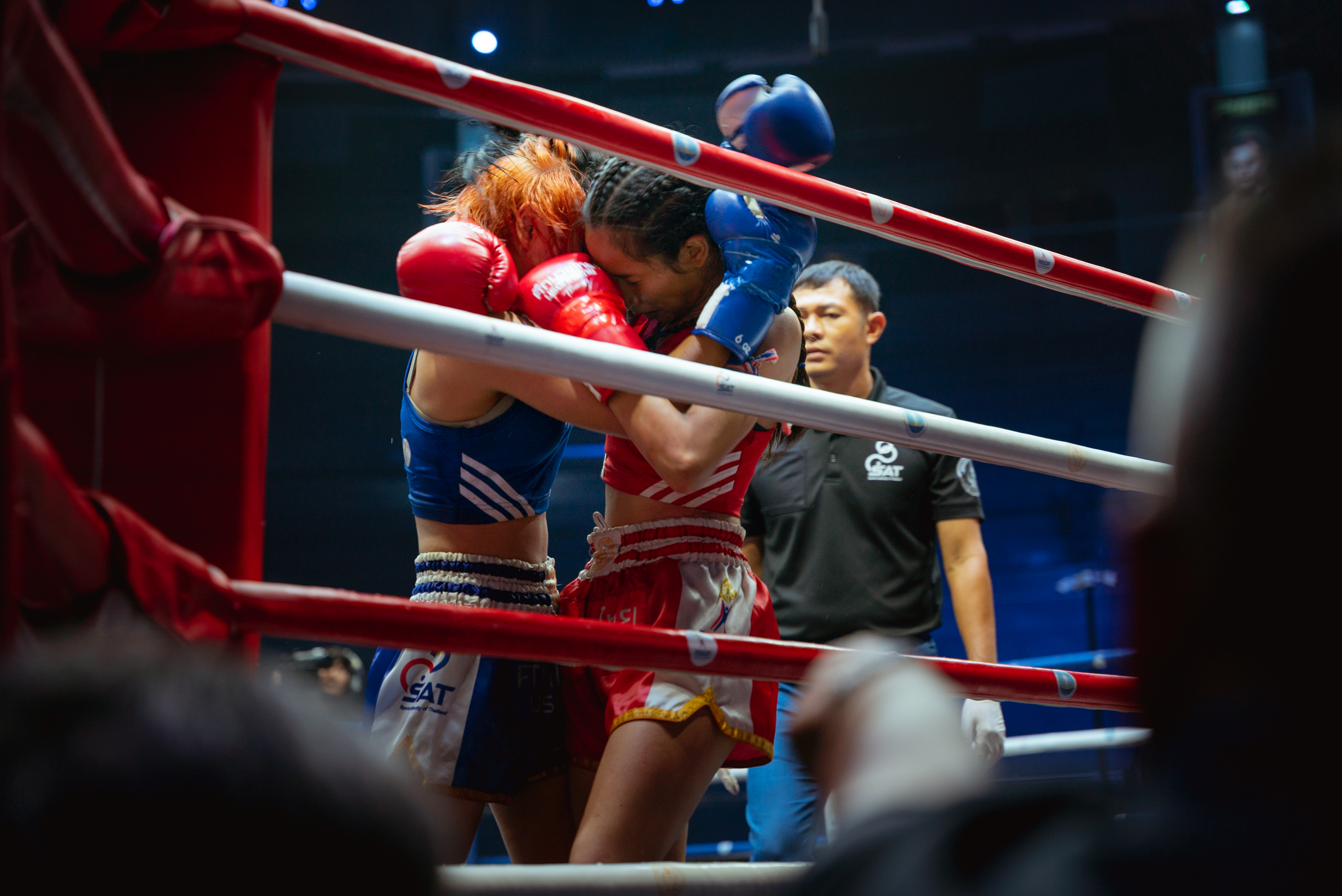
“Women and men train the same, they fight the same. They should get paid the same,” Cha said.
From competing mostly in local tournaments and at temple fairs, Cha has been offered a university scholarship to study sport science. This makes her the first in her family to pursue a university education. She has ambitions of becoming a Muay Thai coach in the future, training other young women like her.
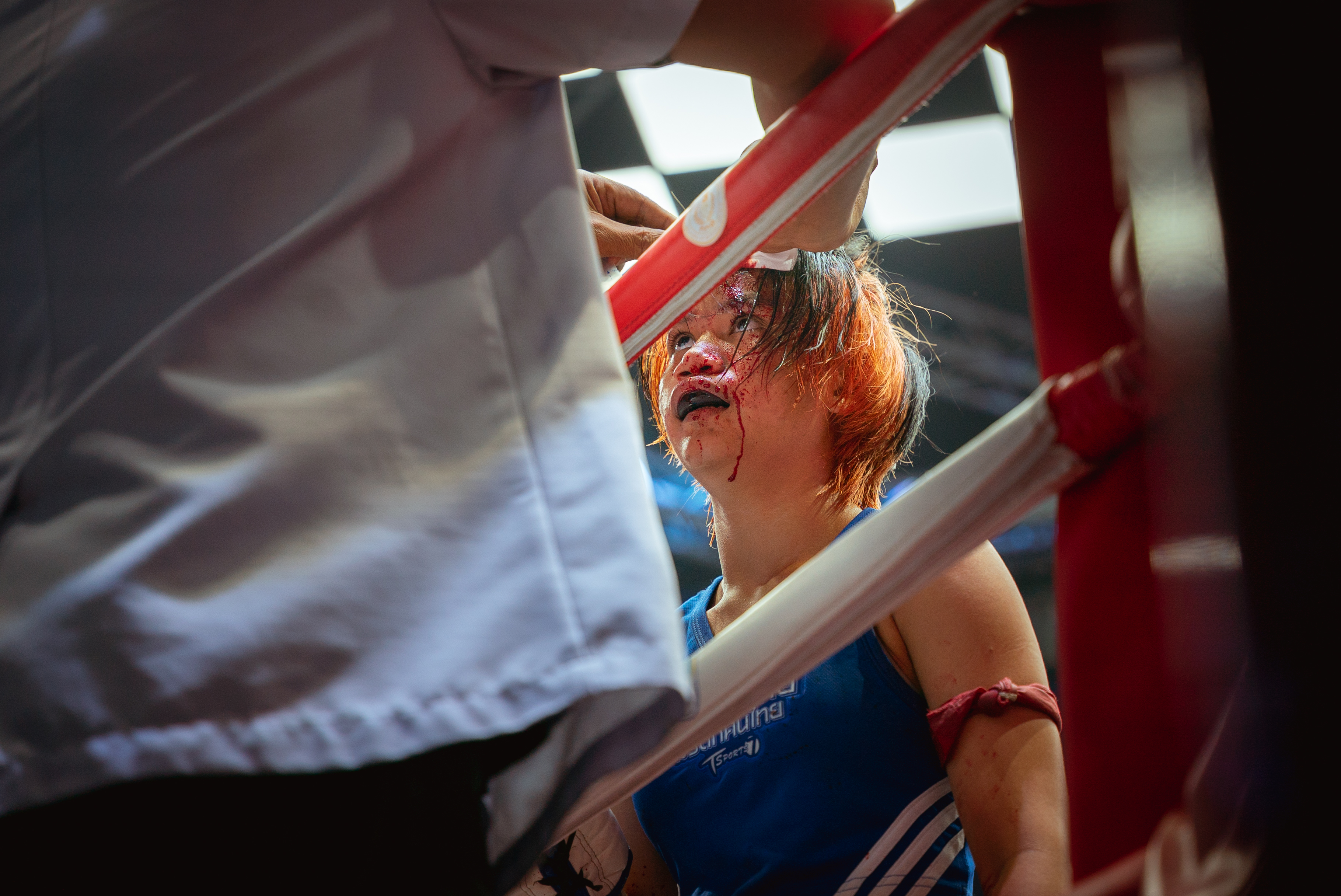
“Some people believe bad things about people in Khlong Toei, but I just don’t think about it,” Cha said. “I just try to be good. I prove myself by fighting in the ring. I’ll show them how good a fighter I am.”
Back in the ring, her opponent's injury seems to have knocked her confidence. As they enter the fifth and final round, Cha’s fighting is bolder, more assured. As she moves in to deliver her final strikes—an attack that would have her win the match by points—her face reads determination.
In many ways, Cha already knows she’s won.
